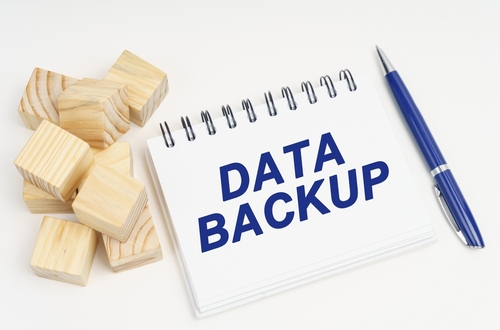Everyone has lost an hour or so of work on their computer. Imagine losing days or weeks of work. Or, worse still, losing your client details, financial records, inventory data, and all the operational files your company has ever produced. That would be devastating. Your data is valuable. It’s the key to understanding your customers. It’s central to being able to service those customers. Your access to meaningful data can often be the difference between you and your competitors. Backing up your data may seem like a small task, but failure to do so can have significant implications for your business. Losing data such as customer information, financial records, vital documents, and your website files can set you and your business back years. It can also seriously damage your reputation in the process.
Guide to Protecting Your Business Data
- What data should I back up?
- How often should I back up?
- What backup type should I use?
- What backup data solutions should I use?
Whether you are a Mac user and rely on Mac Time Machine or you use a Windows backup drive system it is important that you have carefully planned your computer backup strategy. Here are a few crucial factors that you should consider. What data should I back up? If you run a company, some disaster recovery and security management practices are negotiable, and others can make or break your business, such as archiving your data daily. In the first instance, write a plan that clearly outlines your critical data and includes everything from recently modified files and emails to accounting information. Make sure you carefully assess the importance of all your business data. Some data may not become critical until tax time next year. Ensuring your critical data is captured on a backup hard drive is vital to ensure continuity in your business. Knowing exactly what you have backed up will help you stay one step ahead if disaster should strike.
How often should I back up?
 Once you have created a record of this essential data, make sure you install a software program that backs up your data regularly. It’s wise to pick a program that automatically zips your backup files. This saves storage space and increases backup data security. The frequency with which you should run your data backups largely depends on how often you change your data. Businesses that constantly amend files and deal with high data inputs should run daily or hourly backups, but those that are more static may be able to back up less frequently.
Once you have created a record of this essential data, make sure you install a software program that backs up your data regularly. It’s wise to pick a program that automatically zips your backup files. This saves storage space and increases backup data security. The frequency with which you should run your data backups largely depends on how often you change your data. Businesses that constantly amend files and deal with high data inputs should run daily or hourly backups, but those that are more static may be able to back up less frequently.
What backup type should I use?
An appropriate backup type does have a significant impact on the bandwidth, cost, time required and other organisational resources. When choosing a data backup solution that is right for your business, it pays to keep the benefits and disadvantages of each in mind. The three most common backup types are full, differential and incremental. Full backup The most frequent way businesses secure their data, a full backup, is also called a normal backup. The full backup occurs automatically according to a set schedule. It copies all the files and compresses them to save space. A full backup provides efficient data protection of the copied data. Incremental backup An incremental type backs up only the data that has changed since the last backup. That previous backup can be any type of backup. Differential backup Differential backup is the combination of a full backup and an incremental backup. But a differential backup backs up all the changes made since the last full backup. Incremental and differential backups save space and time by storing only changed files. They ensure essential changes have been captured and are generally faster than full data options. But in many instances, a differential backup is the best option. Differential backups work by cumulatively backing up every change made since the last full data backup, a feature that results in quicker recovery times.
What backup data solutions should I use?
 Once you know what data you want to protect, how often you wish to back up that data, and what backup type you need to employ, it's time to consider the best backup solution to use. Here are four common solutions: Hardware solutions You use an external hard drive backup. They are relatively easy to attach to your network, but you will lose the data if the backup external drives fail. Many companies use multiple backup systems to mitigate that risk. Software solutions Software solutions are typically installed directly on your system. You may not need a separate server for it. Backup software is often less expensive than a hardware solution. Cloud solutions Cloud services are essentially an offsite backup. You will run the backup and store it in the cloud. Cloud solutions are secure and affordable but may not be able to be used for particularly sensitive data. Hybrid solutions As the name suggests, hybrid solutions combine physical and cloud solutions to store their data. Hybrid services allow you to have an on-site backup for quick recovery and keep data in the cloud should anything happen on-site. Remember that prevention is better than cure when it comes to your backup strategy. Ensure you make data protection a priority to preserve your critical business information along with your peace of mind. An essential part of backing up your website is to protect against the efforts of hackers to disrupt your business. Learn more here about what you can do to secure your website.
Once you know what data you want to protect, how often you wish to back up that data, and what backup type you need to employ, it's time to consider the best backup solution to use. Here are four common solutions: Hardware solutions You use an external hard drive backup. They are relatively easy to attach to your network, but you will lose the data if the backup external drives fail. Many companies use multiple backup systems to mitigate that risk. Software solutions Software solutions are typically installed directly on your system. You may not need a separate server for it. Backup software is often less expensive than a hardware solution. Cloud solutions Cloud services are essentially an offsite backup. You will run the backup and store it in the cloud. Cloud solutions are secure and affordable but may not be able to be used for particularly sensitive data. Hybrid solutions As the name suggests, hybrid solutions combine physical and cloud solutions to store their data. Hybrid services allow you to have an on-site backup for quick recovery and keep data in the cloud should anything happen on-site. Remember that prevention is better than cure when it comes to your backup strategy. Ensure you make data protection a priority to preserve your critical business information along with your peace of mind. An essential part of backing up your website is to protect against the efforts of hackers to disrupt your business. Learn more here about what you can do to secure your website.



